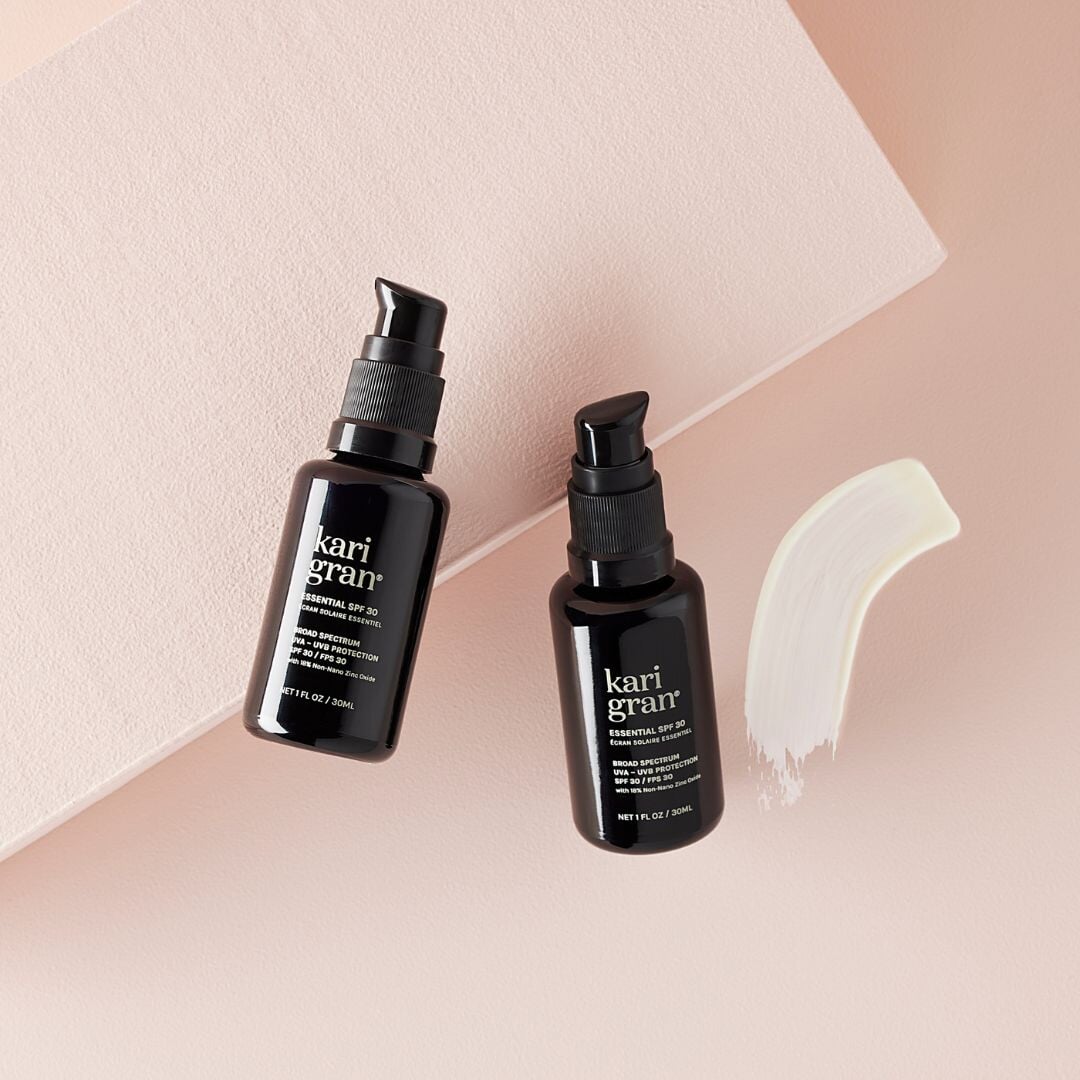Why Sunscreen is Crucial Post Menopause

Perimenopause, menopause and post-menopause all mark a significant transition in a woman's life. While the focus often revolves around managing hormonal fluctuations, one aspect that tends to be overlooked is the importance of sunscreen as estrogen levels decline. Safeguarding your skin from harmful UV rays doesn't become less critical with age; it becomes more crucial. In this blog, we delve into why sunscreen remains an indispensable component of skincare routines, and how it contributes to maintaining healthy, radiant skin as we age.
Menopausal skin undergoes several transformations due to hormonal fluctuations, including a decrease in estrogen levels. This decline leads to a loss of collagen and elastin, resulting in reduced skin elasticity, firmness, and hydration. Additionally, skin becomes more prone to dryness, fine lines, wrinkles, and pigmentation irregularities.
Sun exposure plays a significant role in exacerbating these age-related skin concerns. Ultraviolet (UV) radiation from the sun is a leading cause of premature skin aging, known as photoaging. Prolonged exposure to UV rays accelerates collagen breakdown, leading to sagging skin, deep wrinkles, and age spots. Furthermore, UV radiation damages the skin's DNA, increasing the risk of skin cancer. Both UV light and diminishing estrogen are two sources of an attack on your collagen.
Why sunscreen is imperative post menopause:
- Protection Against Photoaging:
Post-menopausal skin is already grappling with a decrease in collagen and elastin production. Exposure to UV radiation further exacerbates these issues by accelerating collagen degradation and causing elastin fibers to become abnormal. Regular sunscreen application helps mitigate the effects of photoaging by shielding the skin from harmful UV rays, thereby preserving its firmness, elasticity, and radiance. Don’t be fooled, UV light is not limited to a bright sunny day. If it’s light enough to read a book, despite full sunlight, the skin needs protection from UV exposure.
- Prevention of Hyperpigmentation:
Hyperpigmentation, characterized by the appearance of dark spots or patches on the skin, is a common concern among menopausal women. UV exposure triggers the production of melanin, the pigment responsible for skin color, leading to the formation of age spots and uneven skin tone. By wearing sunscreen daily (rain or shine), we can prevent the worsening of existing hyperpigmentation and minimize the likelihood of new discolorations, thus promoting a more even complexion.
- Reduction of Skin Cancer Risk:
While skin cancer can affect people of all ages, the risk tends to increase with cumulative sun exposure. Post-menopausal women may have spent a decent amount of time enjoying outdoor activities, tanning beds, or using baby oil without adequate sun protection, increasing their susceptibility to skin cancer later in life. Incorporating sunscreen into your daily skincare regimen serves as a proactive measure to reduce the risk of developing skin cancer.
- Maintenance of Skin Hydration:
One of the hallmark changes in post-menopausal skin is a decline in moisture levels, leading to dryness, flakiness, and a compromised skin barrier. By preserving the skin's natural moisture balance, sunscreen contributes to a smoother, more supple complexion.
- Prevention of Further Damage:
Even if visible signs of sun damage aren't immediately apparent, continued exposure to UV radiation can wreak havoc on the skin's cellular structure over time. Sunscreen acts as a barrier, shielding the skin from both UVA and UVB rays, thereby preventing cumulative damage. By incorporating sunscreen into a daily skincare routine, post-menopausal women can protect their skin from further harm, it’s never too late to start.
Tips for Choosing and Using Sunscreen:
When selecting a sunscreen for post-menopausal skin, opt for broad-spectrum formulations with a minimum SPF (sun protection factor) of 30. And choose a sunscreen that also offers hydrating benefits. "A richer and more moisturizing sun protection product may benefit your skin more now as it will also give your drier skin a welcome boost of hydration.” says Dr Sajjad Rajpar
Sunscreen remains a cornerstone of skincare for all ages, but especially if post menopausal, daily sunscreen use offers multifaceted benefits that contribute to the overall health and appearance of skin. By prioritizing sun protection and incorporating sunscreen into your daily skincare routine, post-menopausal women can safeguard against aging, hyperpigmentation, and skin cancer, while promoting hydration and resilience. Remember, age is just a number, but healthy, radiant skin is timeless.
Leave a comment
Comments will be approved before showing up.



